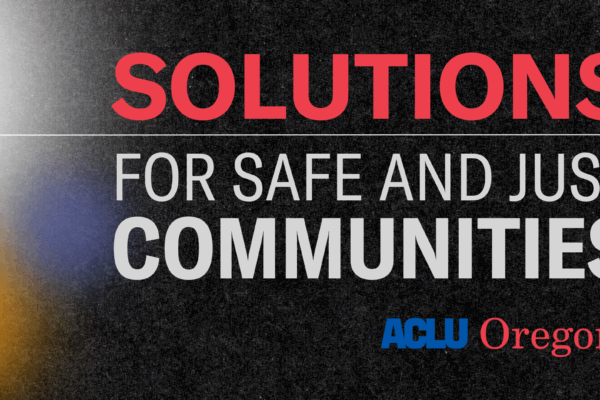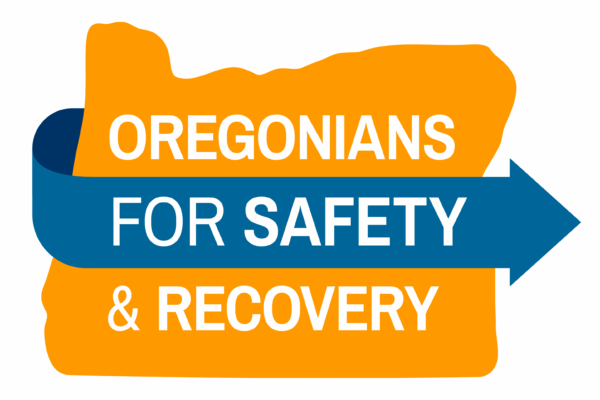SALEM, Ore. — Today, Oregon lawmakers took the final vote on HB 4002, which will increase racial disparities in our state and leave Oregon communities without help and support while fentanyl continues to harm our loved ones. This is a disappointing day for our state, and now we must move into stringent oversight to minimize the harm from HB 4002. The vote also occurred under threat of lawsuit for failing to follow the state law that requires public information about the costs for local law enforcement, estimated arrests and additional people in jail, or project the costs for the next decade before putting a new crime into statute.
We would like to thank Senators Dembrow, Frederick, Jama, Manning Jr, and Prozanski, who listened to the facts and advocated for real solutions to the 2024 legislature to address the addiction and housing crisis in our communities.
Here are quotes from Oregonians for Safety and Recovery coalition partners:
Jennifer Parrish Taylor, Director of Advocacy and Public Policy, Urban League of Portland: “Today, HB 4002 is being touted as a compromise, but we ask at the cost to whom? It is an unacceptable compromise when we know that there will be disparate impacts to Oregonians of color. It is not enough to monitor the system when we know it is a system that has bias built into it. I fear that we will be back next year, hearing those stories of harm, figuring out how to make our communities whole.”
Gloria Ochoa-Sandoval, Policy Director, Unite Oregon: “Unite Oregon, representing Black, Indigenous, People of Color, immigrants, rural communities, and those experiencing poverty, strongly oppose HB 4002. This legislation exacerbates the challenges faced by those grappling with addiction, particularly impacting Black and brown Oregonians and those experiencing homelessness. By prioritizing punitive measures over equitable access to treatment, HB 4002 perpetuates systemic injustice. It joins a regrettable list of bills prioritizing political interests over the well-being of Oregon's most vulnerable populations. We will remain steadfast in advocating for a paradigm shift towards healing and empowerment and commend the legislators who opposed HB 4002. Their courage in standing for justice does not go unnoticed.”
ShaToyia Bentley, Executive Director, The Ebony Collective Coalition: “HB 4002 will be in the list of bills that Oregon has passed that have sacrificed low-income, unprotected and underrepresented Oregonians for personal political interest. We stand and will continue to stand with folks who believe that treatment, healing and uplifting is required. Not an ongoing cycle of punishment without redemption. Lawmakers sided with ‘what had to be done’ instead of what was morally right. We thank the lawmakers who voted ‘no’ on HB 4002. Your courage doesn’t go unnoticed. Black families will continue to fight for our safety because it is our duty to advocate for what is right and not what is easy.”
Jessica Maravilla, Policy Director, ACLU of Oregon: “Together, ACLU of Oregon’s more than 27,000 members imagined an Oregon filled with healing and thriving communities, not more jails and prisons. Thousands of us took action and engaged in our democracy — calling and emailing lawmakers and submitting testimony for hearings. We asked for real solutions including more treatment, housing, prevention programs, community revitalization efforts, and non-police mobile crisis response teams. The ACLU of Oregon community has deep gratitude for the lawmakers who voted 'no' to the false promises of criminalization in HB 4002 — and its unconscionable human and other costs to our state.”
Tera Hurst, Executive Director, Health Justice Recovery Alliance: “The public health approach of expanding treatment without punishment was the right approach, but HB 4002 doubles down on the same mistakes the state made in implementing Measure 110. Unfortunately, it will be people struggling with addiction — especially those living outside and Black and brown Oregonians — who are most vulnerable to arrest and who will pay the biggest price. And our communities will be no safer for it.”
Andy Ko, Executive Director, Partnership for Safety and Justice: “HB 4002 is a profoundly flawed bill that does not contain the solutions Oregon needs. Now, instead of focusing all our efforts on fighting for overdose prevention, treatment, and crisis outreach, we must also work to lessen the damage that HB 4002 will cause. The impact of disparate enforcement on communities of color also means we will need to press both for racial data reporting and greater expansion of funding for culturally specific treatment programs.”
###
About Oregonians for Safety and Recovery:
Oregonians for Safety and Recovery (OSR) coalition members include ACLU, ACLU of Oregon, Drug Policy Alliance, Ebony Collective Coalition, Health Justice Recovery Alliance, Imagine Black, Partnership for Safety and Justice, Unite Oregon and Urban League of Portland. These organizations work collaboratively to defend Measure 110 and decriminalization while advocating for real solutions, including increased investment and accessibility to drug treatment, detox, and housing services to meet the full needs of people experiencing addiction.
Related Content

Solutions for Safe and Just Communities

Statements from coalition members of Oregonians for Safety and Recovery on passage of HB 4002 in the Oregon House
Stay Informed
Sign up to be the first to hear about how to take action.
By completing this form, I agree to receive occasional emails per the terms of the ACLU’s privacy statement.
By completing this form, I agree to receive occasional emails per the terms of the ACLU’s privacy statement.

